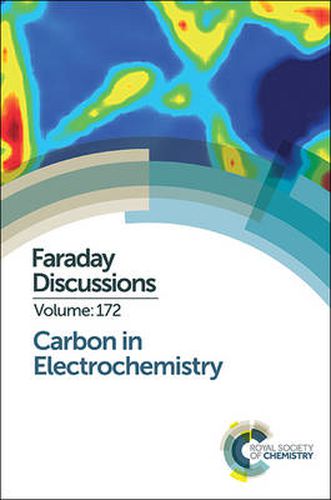Readings Newsletter
Become a Readings Member to make your shopping experience even easier.
Sign in or sign up for free!
You’re not far away from qualifying for FREE standard shipping within Australia
You’ve qualified for FREE standard shipping within Australia
The cart is loading…






Carbon is ubiquitous in electrochemical research and has played an important role in the development of the discipline. Carbon paste and glassy carbon electrodes have been indispensable in electroanalysis as cheap alternatives to noble metals. The development of the carbon fibre microelectrode revolutionised the use of electrochemical measurements in investigating biological function. In recent years the use of carbon in more novel forms (e.g. carbon nanotubes, graphene) has impacted on all areas of fundamental and applied electrochemistry and this is likely to continue into the future. Advanced electrochemical techniques such as scanning electrochemical microscopy, electrochemical AFM and spectroelectrochemistry have moreover increased our understanding of the interfacial properties of traditional carbon electrode materials.
Carbon also plays an important role in technologically applied areas of electrochemistry - in energy generation and storage and catalyst support. The use of carbon electrodes thus spans a range of disciplines, from materials chemists, engineers and physicists as well as those engaged in more traditional aspects of electrochemistry. The subject area is of both academic and technological relevance. This title will also be of relevance to researchers investigating energy, water and health.
$9.00 standard shipping within Australia
FREE standard shipping within Australia for orders over $100.00
Express & International shipping calculated at checkout
Carbon is ubiquitous in electrochemical research and has played an important role in the development of the discipline. Carbon paste and glassy carbon electrodes have been indispensable in electroanalysis as cheap alternatives to noble metals. The development of the carbon fibre microelectrode revolutionised the use of electrochemical measurements in investigating biological function. In recent years the use of carbon in more novel forms (e.g. carbon nanotubes, graphene) has impacted on all areas of fundamental and applied electrochemistry and this is likely to continue into the future. Advanced electrochemical techniques such as scanning electrochemical microscopy, electrochemical AFM and spectroelectrochemistry have moreover increased our understanding of the interfacial properties of traditional carbon electrode materials.
Carbon also plays an important role in technologically applied areas of electrochemistry - in energy generation and storage and catalyst support. The use of carbon electrodes thus spans a range of disciplines, from materials chemists, engineers and physicists as well as those engaged in more traditional aspects of electrochemistry. The subject area is of both academic and technological relevance. This title will also be of relevance to researchers investigating energy, water and health.